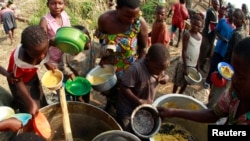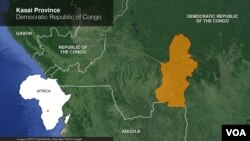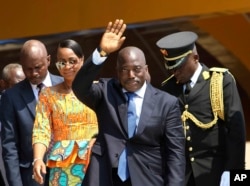Tens of thousands of children in central Democratic Republic of Congo can’t go to school because of the violence between militia fighters and security forces, and attacks against civilians, the United Nations children’s fund (UNICEF) said Friday.
Hundreds of people have been killed and more than a million displaced in Congo’s Greater Kasai region since fighting broke out last August between a local militia and government forces.
The violence has kept at least 150,000 children in the region out of the classroom, while more than 600 primary and secondary schools have been damaged by attacks, UNICEF said.
Some schools have been occupied by fighters, leaving pupils and teachers unwilling or unable to return, and others are being used as emergency shelter for families uprooted by the violence.
“Schools should be safe places where children can learn and begin to recover from the stress of the displacement or the memories of what they might have seen,” said Tajudeen Oyewale, UNICEF’s acting representative in Congo.
“Returning to the classroom can give children a small sense of normality in troubled times,” he said in a statement.
More than 1 in 10 children of primary school age in Greater Kasai have seen their education disrupted by violence, and many schools have been shut for several months, UNICEF said.
Ethnic violence in Congo, Africa’s second-largest country, has spread and worsened since December when President Joseph Kabila refused to step down at the end of his mandate.
The total number of displaced throughout Congo has more than doubled to 3.7 million since August 2016, with 1.3 million of them uprooted within the Kasai region, according to the U.N. Office for Humanitarian Affairs (OCHA).
The U.N.’s human rights chief called Friday for an international investigation into massacres and other crimes committed in Kasai, where at least 42 mass graves were found.
The government had said it would accept U.N. assistance but wanted to retain control of the inquiry in response to a Thursday deadline by U.N. High Commissioner for Human Rights Zeid Ra’ad al-Hussein for Congo to agree to a joint probe.
But in his statement Friday, Zeid said the government “response to date falls short” and urged the U.N. Human Rights Council, which is holding a session until June 23, to act.







